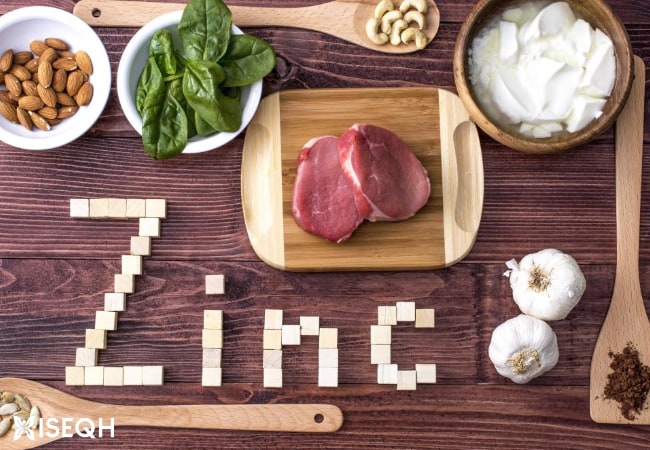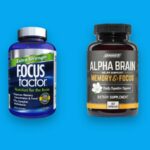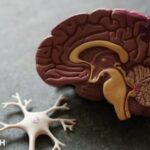
Table of Contents
Introduction – What is Zinc?
Zinc is a fundamental mineral that performs a pivotal role in numerous physiological processes in the body. It is imperative for supporting a healthy immune system, promoting wound healing, maintaining skin health, optimizing mental health, and sustaining reproductive health. In this write-up, we shall delve into the advantages, origins, and hazards linked with Zinc.
Importance of Zinc in the body
Zinc is an essential mineral that plays a vital role in a wide range of bodily functions, including cell growth, immune system function, wound healing, and the metabolism of carbohydrates, proteins, and fats.
Sources of Zinc
Dietary sources of Zinc
Zinc is found in a variety of foods, including meat, seafood, whole grains, and legumes. Oysters are one of the best sources of Zinc, providing over 400% of the daily recommended intake in just one serving.
Zinc supplements
Zinc supplements are also available in various forms, including tablets, capsules, and lozenges. It is essential to talk to your doctor before starting a Zinc supplement to determine the appropriate dosage and to avoid potential interactions with other medications.
Zinc and Immune System
Zinc and the common cold
Zinc has long been touted as a natural remedy for the common cold, with several studies suggesting that Zinc supplementation can reduce the duration and severity of cold symptoms.
Zinc and COVID-19
Recent research has also investigated the role of Zinc in COVID-19 prevention and treatment. Zinc has been shown to inhibit the replication of coronaviruses in cell culture studies, although more research is needed to determine its efficacy in humans.
Zinc and Skin Health
Zinc and acne
Zinc has been shown to have anti-inflammatory properties that may help reduce acne’s severity and frequency. Zinc also plays a role in regulating oil production in the skin, further reducing the risk of acne breakouts.
Zinc and wound healing
Zinc plays a vital role in wound healing, with several studies suggesting that Zinc supplementation can speed up the healing process and improve the quality of the healed tissue.
Zinc and Mental Health
Zinc and depression
Studies have suggested that Zinc may play a role in the development and treatment of depression, with Zinc deficiency being associated with an increased risk of depression. Zinc supplementation may improve depressive symptoms in some individuals, although more research is needed to establish its effectiveness.
Zinc and ADHD
Zinc may also be beneficial for individuals with ADHD, with some studies indicating that Zinc supplementation may improve symptoms of hyperactivity, impulsivity, and inattention in children with ADHD.
Zinc and Reproductive Health
Zinc and fertility
Zinc plays a critical role in reproductive health, with Zinc deficiency being associated with infertility and reduced sperm count in men. Zinc supplementation may improve fertility in both men and women.
Zinc and pregnancy
Zinc is essential for fetal growth and development, with Zinc deficiency during pregnancy being associated with adverse outcomes, including premature delivery and low birth weight. Pregnant women should ensure that they are getting adequate Zinc through their diet or supplementation.
Zinc Deficiency
Symptoms of Zinc Deficiency
Zinc deficiency can cause a range of symptoms, including hair loss, diarrhea, delayed wound healing, and immune system dysfunction.
Who is at risk of Zinc Deficiency?
Individuals who follow a vegetarian or vegan diet, have gastrointestinal disorders, or consume excessive amounts of alcohol are at an increased risk of Zinc deficiency.
Diagnosis and Treatment of Zinc Deficiency
Zinc deficiency can be diagnosed through blood tests, with Zinc supplements or dietary changes being the most effective treatments.
Zinc Toxicity
Symptoms of Zinc Toxicity
Excessive Zinc consumption can lead to toxicity, with symptoms including nausea, vomiting, abdominal cramps, and diarrhea.
Who is at risk of Zinc Toxicity?
Individuals who take high-dose Zinc supplements or consume large amounts of Zinc-containing foods are at an increased risk of Zinc toxicity.
Diagnosis and Treatment of Zinc Toxicity
Zinc toxicity can be diagnosed through blood tests, with treatment involving discontinuation of Zinc supplements or the removal of Zinc-containing objects from the body.
Conclusion
In summary, Zinc is an essential mineral that plays a crucial role in several bodily functions. Zinc supplementation may have benefits for immune system function, skin health, mental health, and reproductive health. However, it is important to be aware of the risks associated with Zinc deficiency or toxicity and to speak with a healthcare professional before starting Zinc supplements.
FAQs
How much Zinc should I take per day?
The recommended daily intake of Zinc varies by age and gender, with adults typically requiring around 8-11 mg per day.
Is Zinc safe for pregnant women?
Zinc is essential for fetal growth and development, and pregnant women should ensure that they are getting adequate Zinc through their diet or supplementation. However, it is important to speak with a healthcare professional before starting Zinc supplements during pregnancy.
How can I tell if I am Zinc deficient?
Zinc deficiency can be diagnosed through blood tests, and symptoms may include hair loss, diarrhea, delayed wound healing, and immune system dysfunction.
What foods should I eat to get more Zinc in my diet?
Zinc can be found in a variety of foods, including oysters, beef, chicken, tofu, lentils, and nuts.








